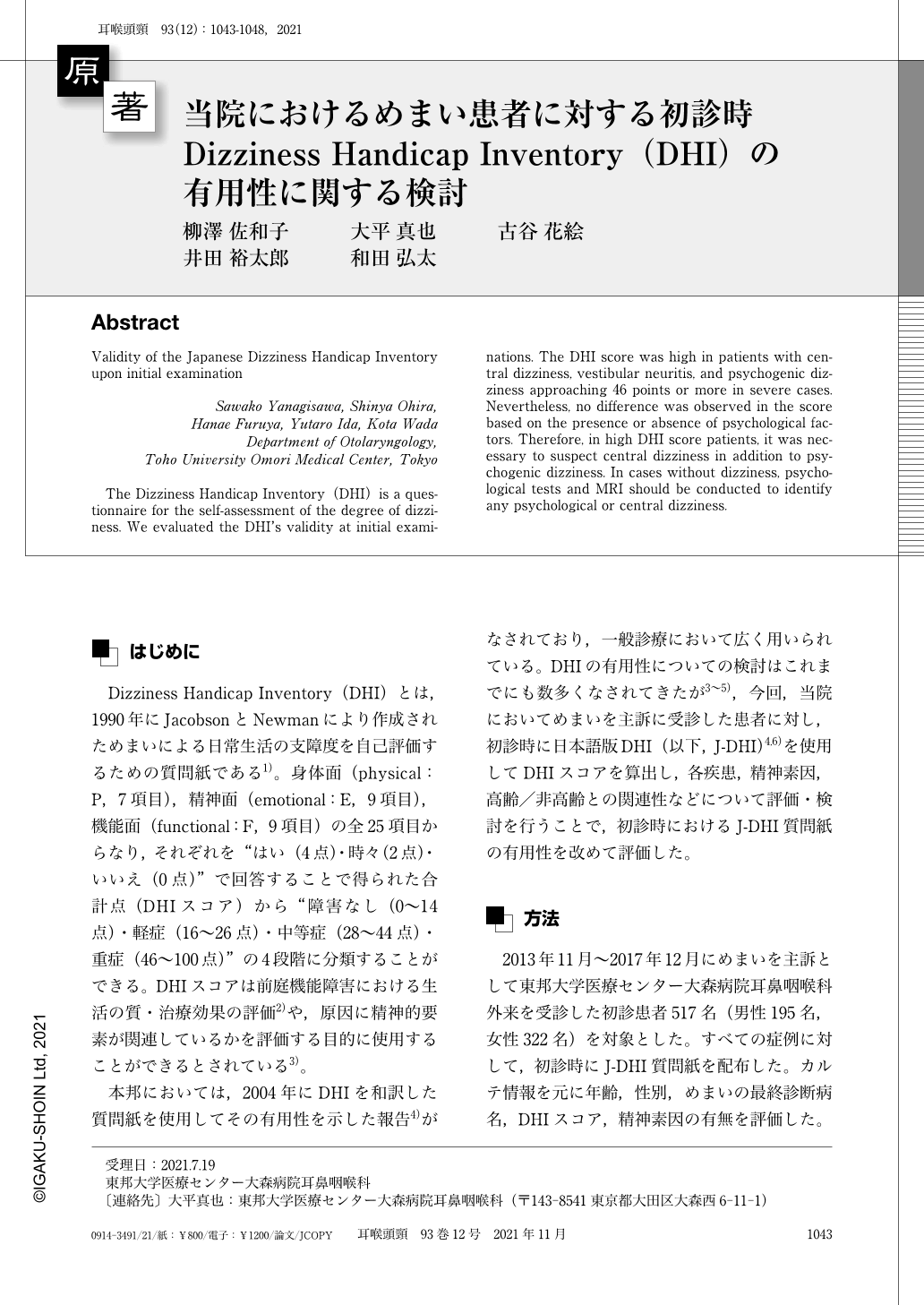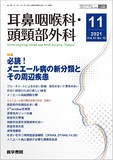Japanese
English
- 有料閲覧
- Abstract 文献概要
- 1ページ目 Look Inside
- 参考文献 Reference
はじめに
Dizziness Handicap Inventory(DHI)とは,1990年にJacobsonとNewmanにより作成されためまいによる日常生活の支障度を自己評価するための質問紙である1)。身体面(physical:P,7項目),精神面(emotional:E,9項目),機能面(functional:F,9項目)の全25項目からなり,それぞれを“はい(4点)・時々(2点)・いいえ(0点)”で回答することで得られた合計点(DHIスコア)から“障害なし(0〜14点)・軽症(16〜26点)・中等症(28〜44点)・重症(46〜100点)”の4段階に分類することができる。DHIスコアは前庭機能障害における生活の質・治療効果の評価2)や,原因に精神的要素が関連しているかを評価する目的に使用することができるとされている3)。
本邦においては,2004年にDHIを和訳した質問紙を使用してその有用性を示した報告4)がなされており,一般診療において広く用いられている。DHIの有用性についての検討はこれまでにも数多くなされてきたが3〜5),今回,当院においてめまいを主訴に受診した患者に対し,初診時に日本語版DHI(以下,J-DHI)4,6)を使用してDHIスコアを算出し,各疾患,精神素因,高齢/非高齢との関連性などについて評価・検討を行うことで,初診時におけるJ-DHI質問紙の有用性を改めて評価した。
The Dizziness Handicap Inventory(DHI)is a questionnaire for the self-assessment of the degree of dizziness. We evaluated the DHI's validity at initial examinations. The DHI score was high in patients with central dizziness, vestibular neuritis, and psychogenic dizziness approaching 46 points or more in severe cases. Nevertheless, no difference was observed in the score based on the presence or absence of psychological factors. Therefore, in high DHI score patients, it was necessary to suspect central dizziness in addition to psychogenic dizziness. In cases without dizziness, psychological tests and MRI should be conducted to identify any psychological or central dizziness.

Copyright © 2021, Igaku-Shoin Ltd. All rights reserved.


